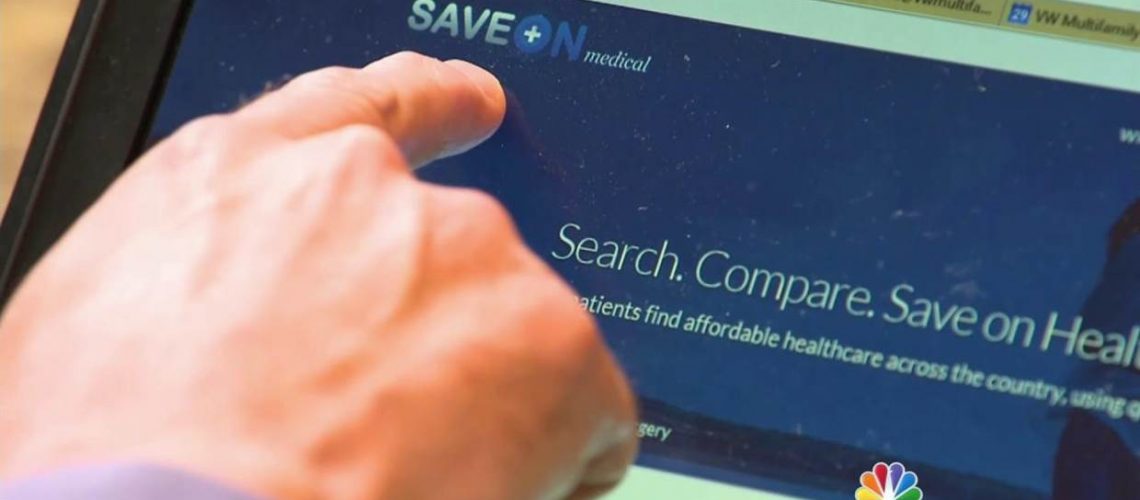The next time you get a medical bill, don’t pay it — at least not right away. It pays to check for errors first.
Accounts of medical billing errors vary widely. While the American Medical Association estimated that 7.1 percent of paid claims in 2013 contained an error, a 2014 NerdWallet study found mistakes in 49 percent of Medicare claims. Groups that review bills on patients’ behalf, including Medical Billing Advocates of America and CoPatient, put the error rate closer to 75 or 80 percent.
“Don’t pay it until you understand it,” said Sara Taylor, health solutions and strategies manager for benefits administrator Aon Hewitt.
For some consumers, spotting and correcting medical billing problems is getting easier. A forthcoming Aon Hewitt survey of 800 large and mid-size employers found that 45 percent offer advocacy services to help workers manage their health-care benefits; 43 percent are considering adding those services within five years.
Read More: How to Deal With the Pain of a Surprise Medical Bill
“The ‘why’ is easy,” said Taylor. “Navigating the health-care system is complex, it’s confusing, it’s hard, and people are asking for help.” Offering an advocacy service can help reduce overall plan costs, she said, and boost worker productivity.
“Two-thirds of all of our interactions is people raising their hand and saying, ‘I’m about to use the health-care system,” said Tom Spann, chief operating officer of Accolade, a health-care concierge that serves nearly 1 million consumers through employee and health-plan partnerships. “They want to know how much something is going to cost.” The service also steps in to help users correct bills, get rejected claims re-submitted and negotiate out-of-pocket charges.
Often, billing errors result in an out-of-pocket cost that’s bigger than expected, either from a charge that shouldn’t be there or a coding error that affected how your insurer processed the claim.
“Hospitals, sometimes you get billed for things that never got done, medicines you never got and services not received,” said Dr. Davis Liu, author of “The Thrifty Patient.”
But it’s also possible that you shouldn’t have been billed at all.
Sometimes providers send a bill prematurely, before they receive payment from your insurer, said Liu.
In other cases, it might be a “balance bill” for the remainder after your insurance pays its share — a practice that isn’t allowed for in-network providers, he said. Some state laws also step in to protect insured consumers from charges they incur for out-of-network emergency services during a hospital visit (i.e. you picked an in-network hospital, but the surgeon or anesthesiologist isn’t in network).
Read More: Medical Bills Are the Biggest Cause of Personal Bankruptcy
It’s not just the big bills you have to consider. Some providers still reflexively collect co-pays for preventive care visits, which are generally fully covered, said Rebecca Palm, co-founder of CoPatient. “That’s one instance of a really small bill that can have savings opportunities,” she said.
Navigating a problem bill
If you have access to free or reduced-cost advocacy services through an employer or health plan, make that your first stop, said Taylor. “In many cases, these programs are underutilized,” she said. “A lot of consumers don’t even know that they exist.”
If that’s not an option? “I would immediately call and ask for an itemized detailed statement,” said Candice Butcher, vice president of the Medical Billing Advocates of America. A line-by-line review should give you at least some sense of its accuracy, she said. It may help you remember getting a procedure or medication, she said.
A call to your insurer can also help you understand why they processed the claim the way they did.
For big bills, as well as complex ones like a hospital visit — where you might receive several bills from various providers — consider hiring a billing advocate, Liu said.
Typically, review of the bill is free, with the service taking a cut of whatever savings it successfully secures for you. (MBAA takes a 25 percent cut; CoPatient, 35 percent.) Outsourcing the process can also save you time spent trying to get the bill corrected, he said.
Just don’t wait too long to pay (or officially dispute) medical bills, said Butcher. Some providers are fast to take action on unpaid balances — resulting in 20 percent of consumers having an unpaid medical debt on their credit report, according to a 2014 Consumer Financial Protection Bureau study. The average amount owed: $579.
Medical debt collections now have less influence in the latest FICO and VantageScore credit-scoring models, and once a medical debt is settled, it’s ignored completely, said credit expert John Ulzheimer. The catch? Many lenders aren’t yet using the new formula.
“None of the changes are going to be meaningful for anyone applying for a mortgage,” he said.
Come this fall, consumers will have more protections. As part of a 2015 settlement, medical debts sent to collections will have a grace period of six months before showing up on a consumer’s credit report. The three credit reporting companies will also be required to remove a medical debt once it is reported as paid or settled by the insurance company. (Those paid or settled by you will remain on the report.) Currently, there is no grace period, and any settled medical debts can remain on your credit report for up to seven years.
——————————————————
Photo courtesy of: NBC News
Originally Published On: NBC News
Follow Medical Coding Pro on Twitter: www.Twitter.com/CodingPro1
Like Us On Facebook: www.Facebook.com/MedicalCodingPro







